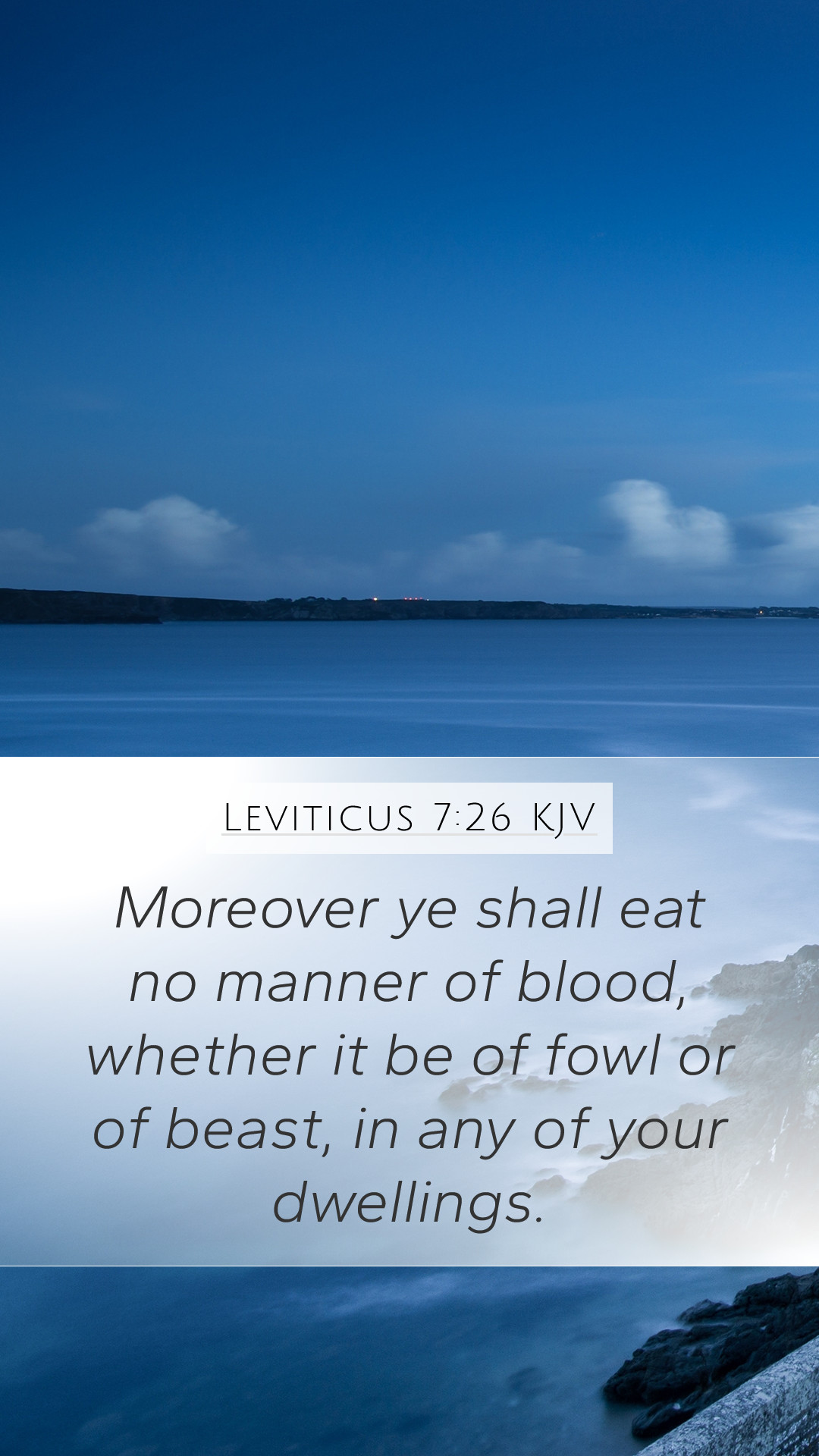Understanding Leviticus 7:26
Leviticus 7:26 states: "Moreover ye shall eat no manner of blood, whether it be of fowl or of beast, in any of your dwellings." This verse emphasizes the prohibition against consuming blood, which was an important aspect of the dietary laws given to the Israelites. The understanding of this verse can be derived from various public domain commentaries, such as those by Matthew Henry, Albert Barnes, and Adam Clarke.
Verse Meaning
This Bible verse highlights the divine command regarding blood consumption. Blood was regarded as sacred, representing life itself, and was not to be treated lightly. The emphasis on blood is reiterated throughout the book of Leviticus, indicating its significance in the covenant relationship between God and His people.
Commentary Insights
According to Matthew Henry, the prohibition against blood consumption symbolizes the sanctity of life. Just as blood is essential for life, it is also sacred and belongs to God. Henry explains that the Israelites were to respect this command as a means of honoring God's creation and His laws.
Albert Barnes adds that this restriction on blood consumption was intended to set the Israelites apart from surrounding nations who often consumed blood in their rituals. He emphasizes that the act of abstaining from blood reflects a deeper understanding of God’s holiness and the community's worship and practice.
Adam Clarke provides further clarity by noting that this command was not merely about dietary restrictions but was also about understanding the symbolic significance of blood in the sacrificial system. Clarke notes that blood serves as an atonement for sin, and consuming it would undermine the serious nature of sacrificial offerings.
Theological Implications
This verse has profound implications for Bible verse interpretations and Bible study insights. Understanding the seriousness of the prohibition can lead to a richer appreciation of the sacrificial system in the Old Testament and the foreshadowing of Christ's ultimate sacrifice, whose blood brings redemption.
Relevance in Biblical Context
In the broader context of Scripture, Leviticus 7:26 is part of the Holiness Code, which encompasses laws that the Israelites were to follow to live in a way that is pleasing to God. This verse can be linked to several cross-references:
- Genesis 9:4 - God's command against consuming blood.
- Leviticus 17:10-14 - Further elaboration on the prohibition of blood consumption.
- Hebrews 9:22 - The significance of blood in relation to atonement.
Application of the Verse
For modern readers, applying the principles found in Leviticus 7:26 may involve understanding the importance of respecting God's commands and recognizing the sacredness of life. It encourages faithful living by adhering to the principles of holiness that God desires from His people.
Summary
In summary, Leviticus 7:26 serves both as a dietary prohibition and a reminder of the sacredness of life. Through careful bible verse commentary and scripture analysis, readers can grasp its significance and how it informs both practice and understanding of God's relationship with humanity.
Further Study
To deepen your Bible study understanding, consider exploring:
- Bible study topics related to dietary laws in the Old Testament.
- How to interpret Bible verses regarding symbolism and sacrifice.
- Online Bible study resources for additional insights into Levitical laws.


